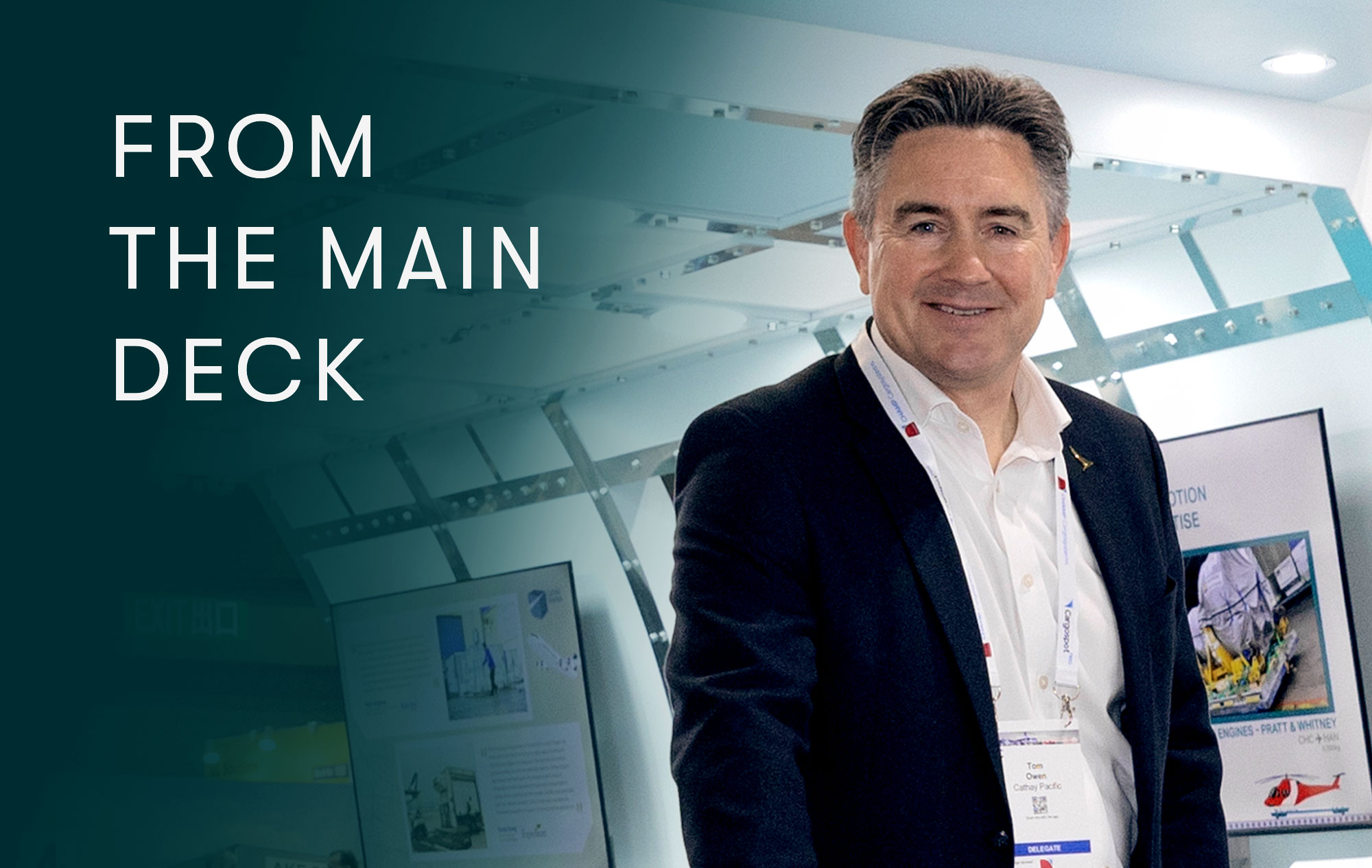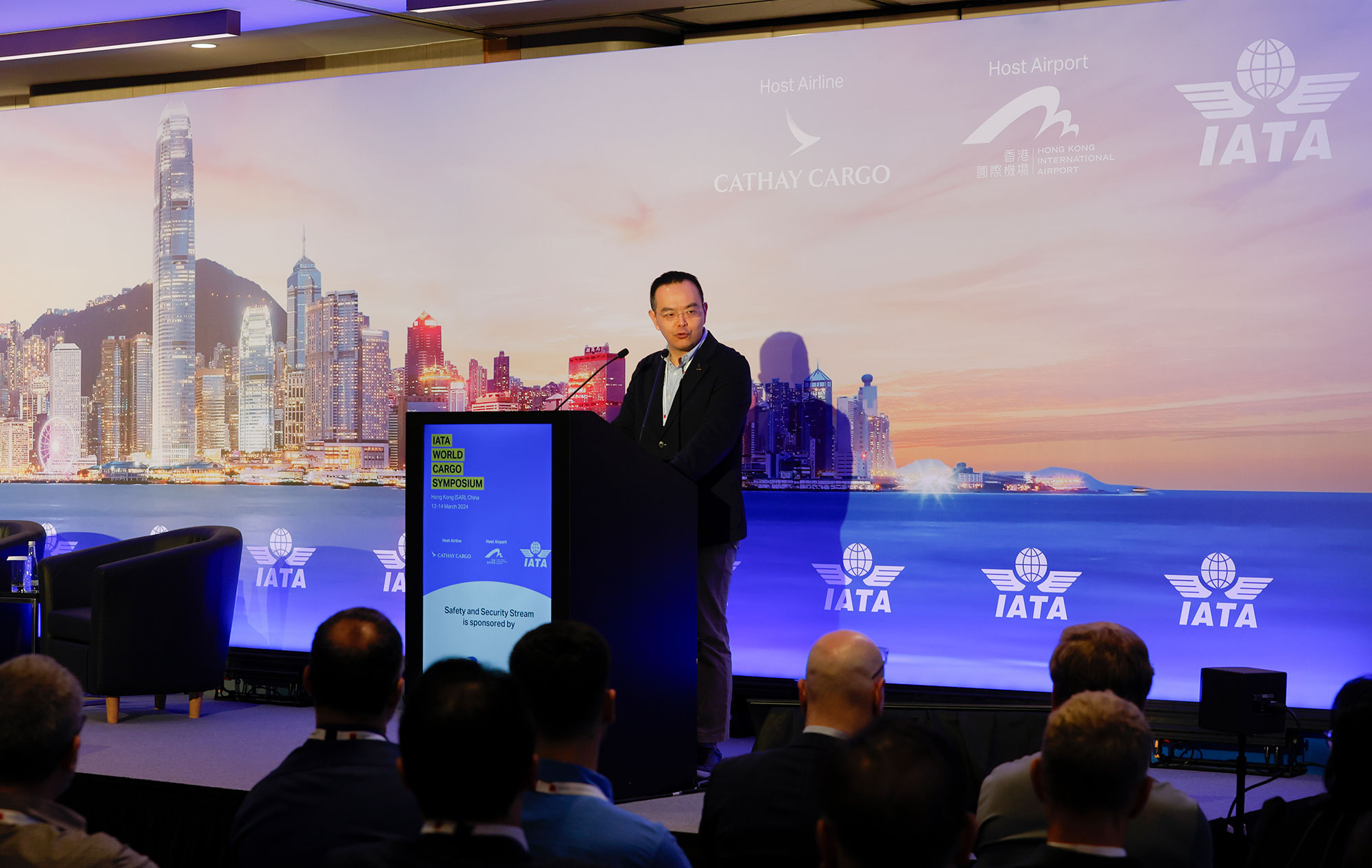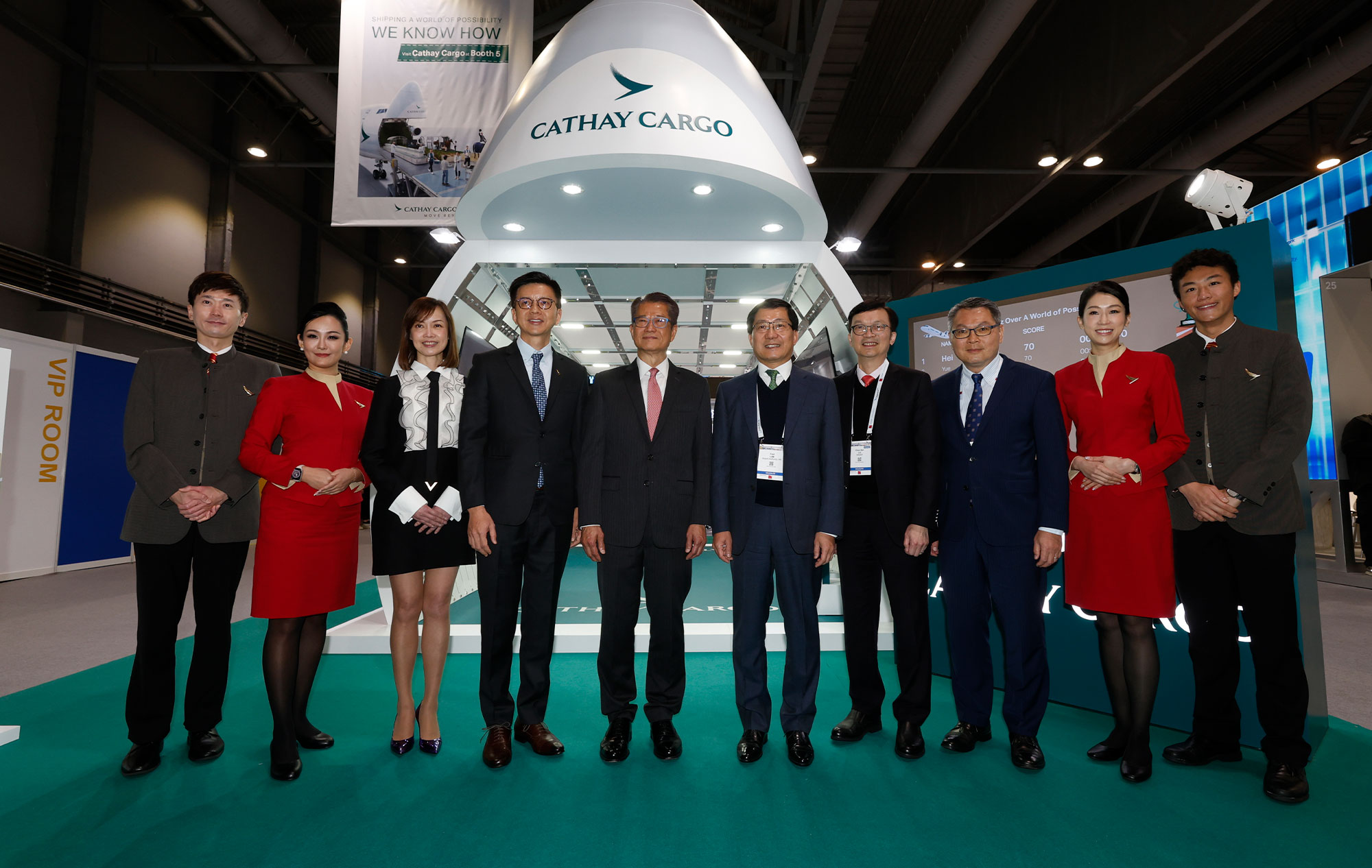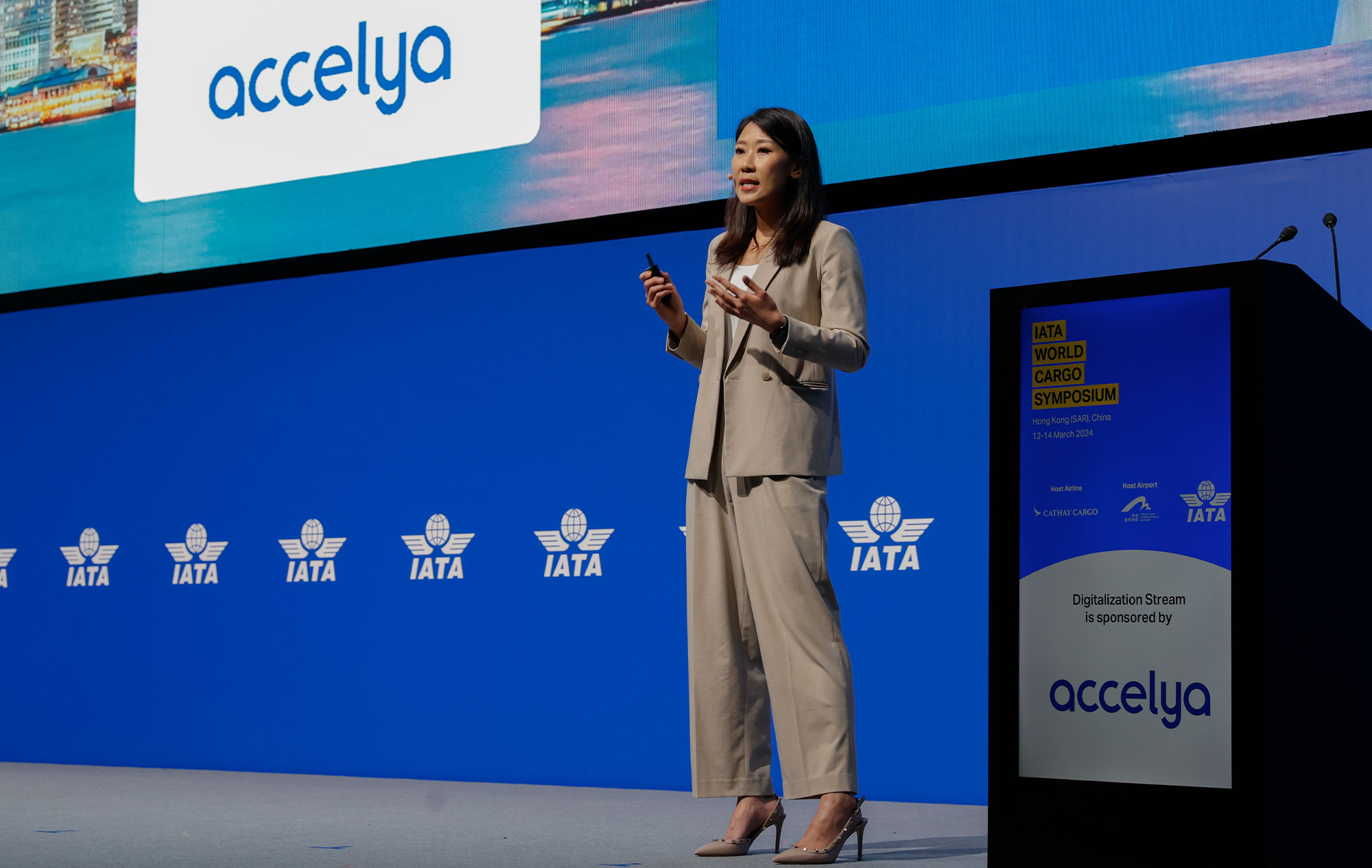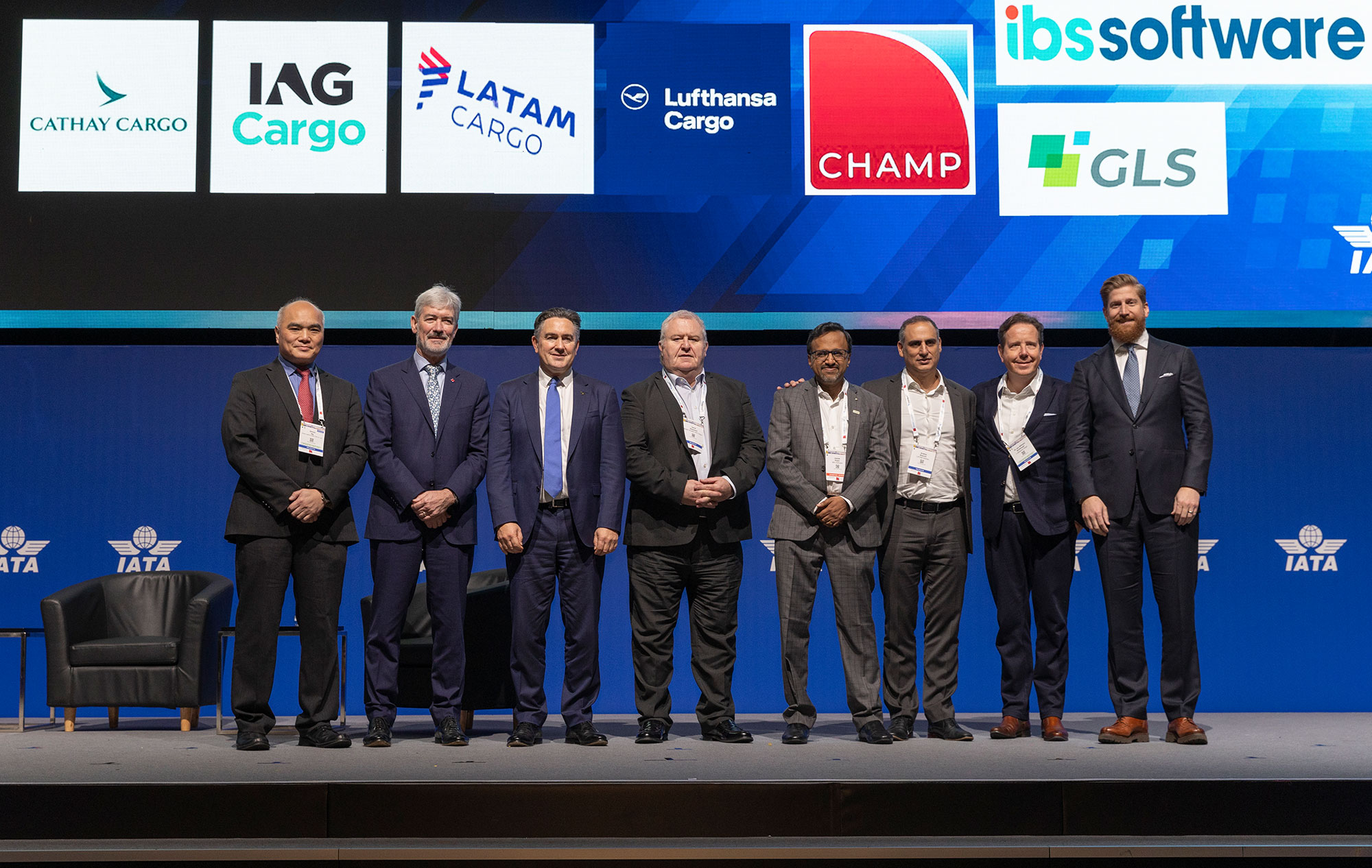A senior team from Cathay Pacific Cargo, led by Director Cargo Tom Owen, attended the IATA World Cargo Symposium (WCS), held in London at the end of September.
‘It was a very productive way to spend a few days,’ said Owen. ‘The workshops, panels and presentations were a superb opportunity to gain insight from other industry leaders – and for us to see how we can learn and improve our own business. It was great to meet our customers, suppliers and competitors face-to-face, for the first time in so long,’ he added.
After an interval of two years thanks to the pandemic, much of the discussion as the 1,300 delegates met face-to-face again was about collaboration and working in a less fragmented way across, to create universal standards across the event’s four main themes.
Brendan Sullivan, Global Head of Cargo at IATA, outlined those themes as sustainability, digitisation, safety and people – the key ways to build resilience into the post-COVID industry.

Sustainability
The primary topic of discussion revolved around reaffirming IATA and its member airlines’ commitment to net zero emissions by 2050. There were also discussions about how to encourage more production of sustainable aviation fuel (SAF), how to mobilise governments to provide incentives to drive production, and how to ensure that offsets were standardised across the industry.
The Cathay Pacific Cargo take: ‘As a business, this is an area where we have done a lot of work,’ said Owen. ‘We have taken the lead in Asia with our Corporate SAF Programme, and our use of SAF underpins our commitment to achieve net zero by 2050, and for 10 per cent of operations to be fuelled by SAF by 2030. When it comes to offsets, we’re building our new emissions calculator into the booking flow, so that our customers will be able to accurately offset their cargo shipments as they book.’

Modernisation and digitisation
Much of the talk was about how the pandemic had injected more pace and agility into air cargo, which is helping the industry to start to meet customer needs for speed and transparency. ‘We need to be true to air cargo’s unique selling point and move even faster,’ said IATA’s Sullivan. He highlighted IATA’s ONE Record standard as a template to enable stakeholders across the supply chain to see the same information on shipments in a standardised way.
The Cathay Pacific Cargo take: Simon Ng, CEO of Global Logistics System (HK) Co Ltd (GLSHK) attended WCS with the Cargo team. GLSHK has helped design some of Cathay Pacific Cargo’s recent digital innovations including booking platform Click & Ship, and the implementation of shared shipment data between cargo stakeholders to IATA ONE Record standards. ‘What I was hearing from delegates was that data is still fragmented and spread among different parties, and that there is still a lot to do when it comes to data sharing,’ he said. ‘This needs to happen, as digitalisation is here, it’s here to stay – and it will keep on evolving.’
Safety
Much of the focus here was on the shipment of goods containing lithium-ion batteries, or just the batteries themselves. As we know, this is becoming more of a priority for air cargo with what Sullivan described as ‘the proliferation of new – and inexperienced – entrants in e-commerce activities.’ IATA is calling for more government support in stopping rogue exporters and has also expanded its CEIV Lithium Battery programme to include airlines and shippers, rather than forwarders alone.
The Cathay Pacific Cargo take: Safe operations are core to every aspect of Cathay Pacific Cargo – all the more so with specific issues around lithium-ion battery carriage, which is both a growing market and a growing issue. ‘Shippers and forwarders that obtain the CEIV Lithium Battery certification will provide us with safety assurance of the upstream management of the shipment content and declarations,’ said Frosti Lau, General Manager Cargo Service Delivery.
‘We also know that we have to do our part too,’ he added. ‘Our range of fire containment bags and fire-resistant containers offer high levels of protection on board. We’ve also introduced an additional control scheme to work alongside the existing Cargo Agent Operation Programme, to help deter undeclared or misdeclared dangerous goods shipments entering our system as general cargo.’
People and recruitment
There was a recognition that air cargo has not in the past appeared to be the most attractive of industries for new or young talent. But its starring role during the pandemic in getting vital supplies through as supply chains clogged has helped to change that. So has the focus on digital enablement, which is starting to attract younger and more tech-savvy recruits. There was also a reminder of IATA’s 25by2025 diversity campaign to increase the number of women in senior positions across the industry.
The Cathay Pacific Cargo Position: ‘As we rebuild, we need to show why cargo is the interesting career we all know it is,’ said Owen. ‘It’s vital to bring in new talent to match the technology.’ The Cathay Pacific Group is currently recruiting 4,000 positions for flight and cabin crew, and even during the pandemic recruited people with the digital expertise to transform the Cargo business.
Quality and operational excellence through Cargo iQ
Alongside the WCS, the team also attended the board and membership meetings of Cargo iQ, the industry quality-management system of which Cathay Pacific Cargo was a founding member, 25 years ago. There was also an extra session for IT experts on the future of data exchange between stakeholders in the transport chain, and GLSHK presented their view and vision of what the future could look like.
The Cathay Pacific Cargo take: ‘Quality service and operational excellence have always been key differentiators of Cathay Pacific Cargo’s service, and that’s the reason we were an early adopter of Cargo iQ,’ said Frosti Lau . ‘We recently announced that we were the first airline to roll out the two new Cargo iQ milestones, FIW/FOW, in the Cathay Pacific Cargo Terminal at our Hong Kong hub. We will continue to work with like-minded industry experts to drive industry standards and shipment transparency.’

Final reflections
‘WCS was a great opportunity to meet with our partners, suppliers and customers,’ said Owen. ‘One thing that came across very strongly was a lot of respect for Cathay Pacific. We heard a lot of supportive feedback about the challenges we’ve faced, and people really are expecting us to come back strongly in the months ahead and reclaim Hong Kong’s position as the region’s top logistics hub, and the premier gateway to the Chinese Mainland.
‘Looking ahead, we are aiming to host the World Cargo Symposium in Hong Kong in 2024, which will give us a great opportunity to showcase our home and promote Cathay Pacific Cargo once more.’




